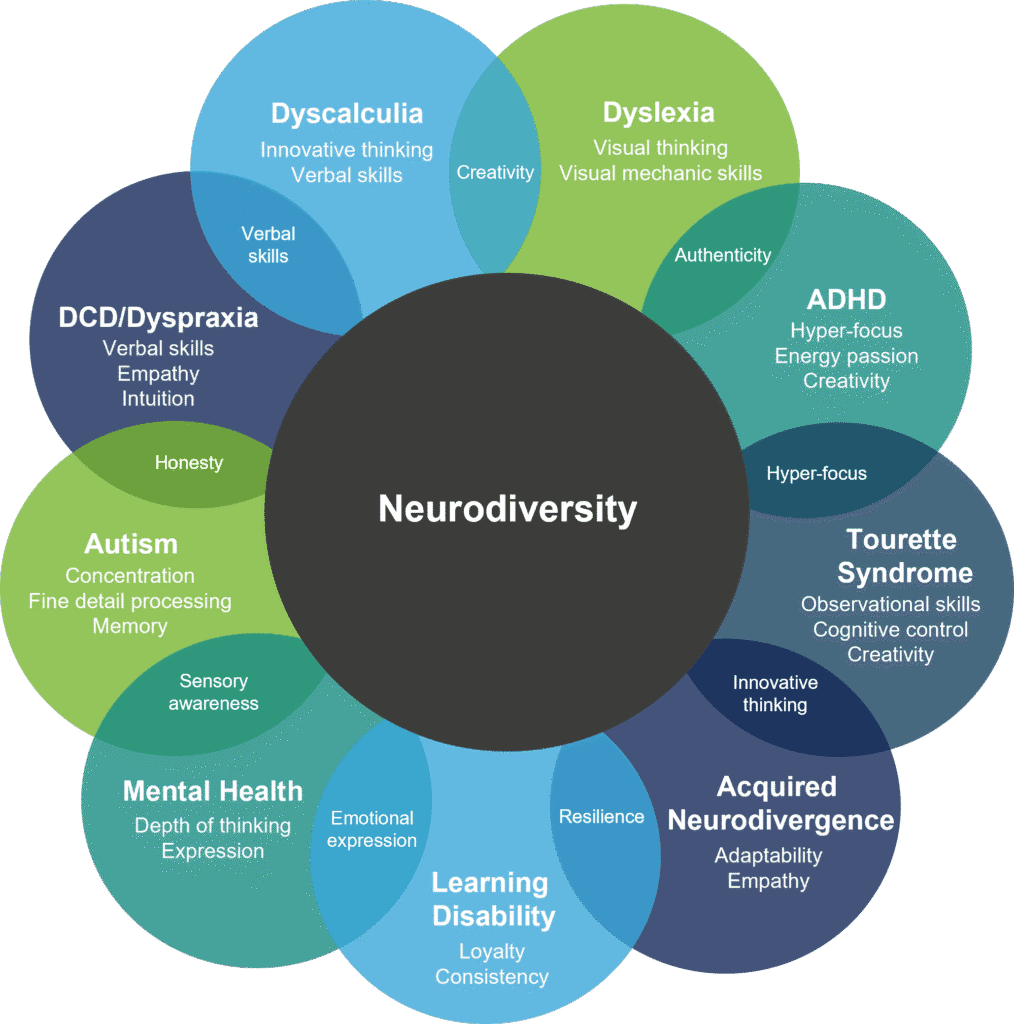Neurodiversity refers to the natural variation in how people think, learn, and process information. It includes conditions such as autism, ADHD, dyslexia, dyspraxia, and Tourette’s syndrome. Supporting neurodivergent employees isn’t just about compliance—it’s about fostering inclusion, unlocking talent, and building a workplace where everyone can thrive.
Why It Matters
- Untapped strengths: Neurodivergent individuals often bring exceptional skills in creativity, problem-solving, attention to detail, and innovation.
- Retention and morale: Inclusive environments reduce turnover and improve team cohesion.
- Legal compliance: Under the Equality Act 2010, neurodivergence may be considered a disability, requiring reasonable adjustments.
Practical Steps for Employers –
- Build Awareness
- Offer training to managers on neurodiversity and inclusive communication.
- Avoid assumptions—each neurodivergent person is unique.
- Inclusive Recruitment
- Use clear, jargon-free job descriptions.
- Offer alternative application formats (e.g. written responses, video).
- Adjust interview formats—consider practical tasks or informal conversations.
- Make Reasonable Adjustments
- Examples include:
- Quiet workspaces or noise-cancelling headphones
- Flexible hours or remote working
- Written instructions alongside verbal ones
- Assistive tech (e.g. screen readers, dictation software)
- Foster a Supportive Culture
- Encourage open conversations about needs and preferences.
- Appoint neurodiversity champions or peer mentors.
- Include neurodiversity in your EDI policy and training.
- Review Performance Management
- Focus on outcomes, not process.
- Use SMART objectives tailored to individual strengths.
- Avoid penalising differences in communication or working style.
The Business Case
- Employers who embrace neurodiversity report improved innovation, productivity, and employee engagement.
- Inclusive practices help attract and retain top talent in competitive markets.
Final Thought
Supporting neurodiversity is about recognising and valuing difference. With the right adjustments and mindset, employers can create workplaces where everyone feels seen, supported, and empowered to succeed.
Need support?
If you’d like tailored advice, manager training, or help reviewing your policies, please don’t hesitate to contact The HR Team. We’re here to help you build inclusive, legally compliant, and high-performing workplaces.








